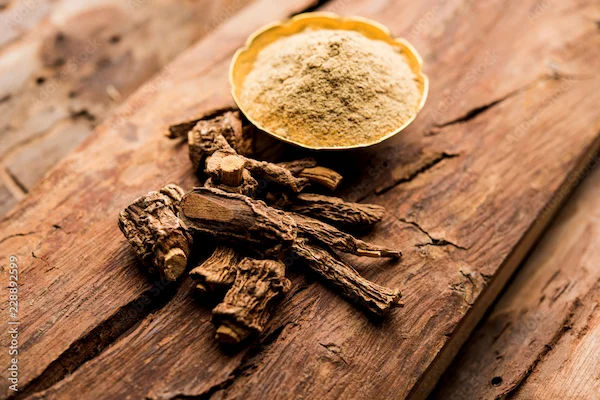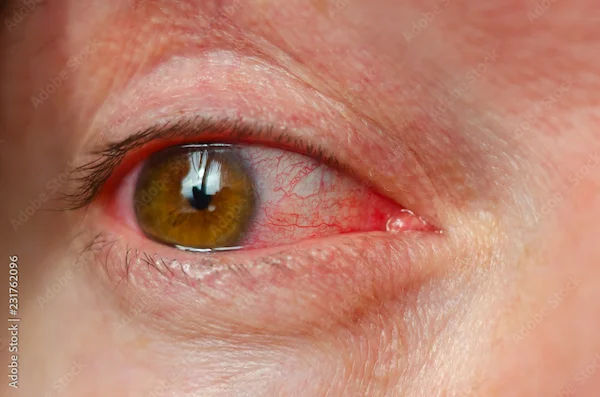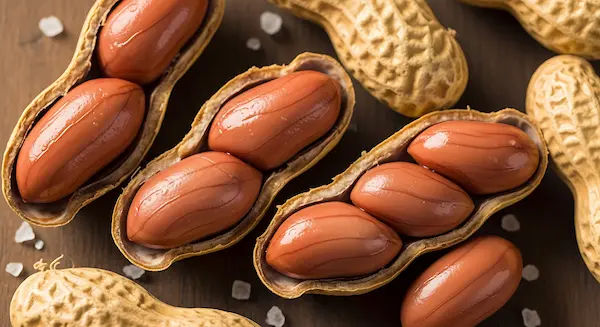What Leads To Recurrent Acute Pancreatitis Diagnosis
Recurrent acute pancreatitis can be a frustrating and painful condition. Learn about the common causes, diagnostic methods, and treatment options to help manage and prevent future attacks.


Introduction
Experiencing one bout of acute pancreatitis—the sudden inflammation of the pancreas—is a painful and alarming event. But when the searing abdominal pain, nausea, and vomiting return again and again, it becomes more than just an episode; it becomes a recurring nightmare. This condition, known as recurrent acute pancreatitis (RAP), poses a significant challenge for patients and doctors alike. Understanding what leads to its diagnosis is the first critical step toward breaking the cycle and preventing long-term damage. This article will guide you through the complex diagnostic journey of RAP. We'll explore the common and uncommon culprits, from gallstones and alcohol to genetic factors and autoimmune conditions. You'll learn about the advanced tests doctors use, why a precise diagnosis is so crucial, and the actionable steps you can take to manage your health and protect your pancreas from future attacks.
Understanding the Pancreas and Its Function
The Role of Your Pancreas
Your pancreas is a vital, silent workhorse located deep in your abdomen, behind your stomach. It has two primary jobs:
1. Exocrine Function: It produces powerful digestive enzymes that are released into the small intestine to break down fats, proteins, and carbohydrates.
2. Endocrine Function: It produces hormones like insulin and glucagon, which are released into the bloodstream to regulate your blood sugar levels.
In pancreatitis, these digestive enzymes become activated inside the pancreas instead of the intestine, essentially causing the organ to digest itself, leading to inflammation, pain, and potential damage.
What is Recurrent Acute Pancreatitis (RAP)?
Defining Recurrent Acute Pancreatitis
Recurrent acute pancreatitis is formally defined as two or more distinct episodes of acute pancreatitis with complete resolution of pain and normalization of pancreatic enzymes (amylase and lipase) between each attack. It's not a chronic, constant pain, but a pattern of repeated acute flares. Each episode increases the risk of the disease progressing to chronic pancreatitis, a condition marked by permanent scarring and loss of function.
The Diagnostic Journey: How Doctors Pinpoint the Cause
Consult Top Specialists
The Initial Steps in Diagnosis
Diagnosing the root cause of RAP is like being a medical detective. The process begins with a thorough investigation after the second episode.
Detailed Medical History and Symptom Review
Your doctor will conduct an in-depth interview, asking about:
The pattern, location, and severity of your pain.
Your alcohol consumption history (quantity and frequency).
Your personal and family history of gallstones, pancreatitis, or other abdominal issues.
Recent medications, especially new ones.
Any history of autoimmune diseases or high triglyceride levels.
Physical Examination
A physical exam will focus on your abdomen to check for tenderness, swelling, or other signs. The doctor may also look for signs of jaundice (yellowing of the skin and eyes), which can indicate a bile duct obstruction.
Common Culprits: Leading Causes of Recurrent Attacks
Gallstones (Biliary Pancreatitis)
Gallstones are the most common cause of acute pancreatitis overall and a frequent trigger for recurrence. Tiny stones can travel from the gallbladder down the common bile duct, which shares an opening with the pancreatic duct. If a stone gets lodged at this opening, it blocks the flow of pancreatic enzymes, triggering an attack
Diagnosis and Management:
An abdominal ultrasound is the first-line test to detect gallstones. If stones are found, the standard treatment to prevent recurrence is a cholecystectomy—surgical removal of the gallbladder.
Alcohol Consumption
Chronic excessive alcohol consumption is the second most common cause. It's not always the single night of heavy drinking that triggers an attack, but the cumulative toxic effect on pancreatic cells over time. The risk increases with the amount and duration of alcohol use.
The Critical Step: Abstinence: Complete and permanent abstinence from alcohol is the single most important action to prevent further attacks in alcohol-induced RAP.
Smoking
Smoking is a major independent and synergistic risk factor. It not only increases the risk of developing pancreatitis but also accelerates the progression from acute to chronic disease. The chemicals in tobacco smoke are directly toxic to pancreatic cells.
Uncommon and Metabolic Causes
Hypertriglyceridemia
Severely high levels of triglycerides (a type of fat in the blood)—typically above 1,000 mg/dL—can cause pancreatitis. The fats are thought to break down into toxic free fatty acids
within the pancreatic capillaries, causing inflammation.
Hypercalcemia
Abnormally high calcium levels in the blood, often due to overactive parathyroid glands (hyperparathyroidism), can lead to calcium deposition in the pancreatic ducts and activate enzymes prematurely.
Structural and Genetic Factors
Pancreatic Divisum
This is the most common congenital anatomical variant of the pancreas. In this condition, the pancreatic ducts fail to fuse during development, creating a narrow drainage pathway that can easily become obstructed, predisposing individuals to attacks.
Genetic Mutations
Hereditary factors play a significant role in many "idiopathic" (unknown cause) cases. Genetic testing can reveal mutations in genes like:
PRSS1: Causes hereditary pancreatitis.
CFTR: The gene mutated in cystic fibrosis, which can cause pancreatic issues even in those without full-blown CF.
SPINK1: A mutation that makes the pancreas more vulnerable to other insults.
Alt Text: Diagnostic flowchart for identifying the cause of recurrent acute pancreatitis.
Advanced Diagnostic Testing
When initial tests are inconclusive, doctors turn to more sophisticated tools.
Advanced Imaging
Magnetic Resonance Cholangiopancreatography (MRCP): A special type of MRI that provides detailed, non-invasive images of the pancreatic and bile ducts to look for strictures, divisum, or stones.
Endoscopic Ultrasound (EUS): A thin, flexible tube with an ultrasound probe at its tip is passed through the mouth and into the stomach and duodenum. This provides incredibly high-resolution images of the pancreas and allows for fine-needle aspiration (biopsy) of suspicious areas. EUS is one of the most sensitive tests for identifying subtle causes of RAP.
ERCP (Endoscopic Retrograde Cholangiopancreatography)
This is both a diagnostic and therapeutic procedure. A scope is used to inject dye directly into the ducts to visualize them on X-ray. If a stone or stricture is found, it can often be removed or dilated during the same procedure.
H3: Genetic Testing
When should you consider genetic testing for pancreatitis? It is typically recommended for individuals with:
A strong family history of pancreatitis.
Recurrent attacks without any other identifiable cause (idiopathic).
An onset of pancreatitis at a young age (<30 years).
The Importance of a Timely and Accurate Diagnosis
Preventing Progression to Chronic Pancreatitis
Each inflammatory attack causes irreversible damage and scarring (fibrosis) of the pancreatic tissue. Over time, this cumulative damage leads to chronic pancreatitis, a painful and debilitating condition characterized by:
Permanent loss of endocrine function (leading to diabetes).
Permanent loss of exocrine function (leading to malnutrition and weight loss).
Chronic, debilitating pain.
An accurate diagnosis of the cause of RAP allows for targeted therapy to stop this progression in its tracks.
Key Takeaways: Quick Summary
Recurrent Acute Pancreatitis (RAP) is defined as two or more separate episodes of pancreatic inflammation.
Gallstones and alcohol are the two most common causes, but many other factors can be responsible.
Smoking significantly increases the risk and severity of RAP.
A thorough diagnostic workup is essential and often involves advanced imaging like MRCP or EUS.
Genetic testing can provide answers for many cases where the cause was previously unknown.
The ultimate goal of diagnosis is to find and treat the underlying cause to prevent progression to chronic pancreatitis and its serious complications.
If you experience recurring severe upper abdominal pain, especially after eating, it is crucial to consult a specialist for a comprehensive evaluation.
Conclusion
The path to diagnosing recurrent acute pancreatitis requires persistence, a thorough medical team, and a willingness to investigate beyond the obvious. It's a puzzle where the pieces can range from lifestyle factors like alcohol and smoking to intricate genetic codes and anatomical quirks. While the journey can be frustrating, securing an accurate diagnosis is empowering. It transforms a pattern of unpredictable pain into a known entity that can be managed and treated. Whether the solution is gallbladder surgery, lifestyle modification, or managing a metabolic condition, identifying the root cause is the key to breaking the cycle of attacks and preserving your long-term pancreatic health and overall well-being. If you suspect you are experiencing symptoms of recurrent pancreatitis, do not delay—consult a gastroenterologist online with Apollo24|7 to begin the diagnostic process and get the answers you need.
Consult Top Specialists
Consult Top Specialists

Dr. Chethan T L
General Physician/ Internal Medicine Specialist
5 Years • MBBS, MD, DNB (General Medicine)
Bengaluru
Apollo Medical Center, Marathahalli, Bengaluru

Dr. Rajib Ghose
General Physician/ Internal Medicine Specialist
25 Years • MBBS
East Midnapore
VIVEKANANDA SEBA SADAN, East Midnapore

Dr Aakash Andgi
General Physician/ Internal Medicine Specialist
9 Years • MBBS MD
Bengaluru
Apollo Clinic, JP nagar, Bengaluru

Dr. Ekta Pandey
General Physician/ Internal Medicine Specialist
5 Years • MBBS
Kolkata
Dr Ekta Pandey Clinic., Kolkata
(125+ Patients)

Dr. Abhishek Ranjan
General Practitioner
4 Years • MBBS
Kolkata
VDC Clinic, Kolkata
More articles from General Medical Consultation
Frequently Asked Questions
1. Can recurrent acute pancreatitis be cured?
Yes, often it can be effectively 'cured' if the underlying cause is identified and eliminated. For example, removing a gallbladder full of stones or completely abstaining from alcohol can prevent future attacks in many patients.
2. What does the pain of a pancreatitis attack feel like?
The pain is typically a severe, constant, boring pain in the upper abdomen that often radiates straight through to the back. It is frequently worsened by eating, especially fatty foods.
3. Are there any specific dietary changes for preventing recurrent pancreatitis?
Yes, a low-fat diet is commonly recommended to reduce the workload on the pancreas. Staying well-hydrated and avoiding alcohol entirely are also critical. A dietitian can provide personalized guidance.
4. How is recurrent pancreatitis different from chronic pancreatitis?
Recurrent acute pancreatitis involves separate episodes of inflammation with complete recovery between attacks. Chronic pancreatitis is a persistent, long-standing inflammation that causes permanent scarring and loss of function, even when you're not in acute pain.
5. Is recurrent pancreatitis a sign of pancreatic cancer?
While chronic pancreatitis is a known risk factor for pancreatic cancer, recurrent acute pancreatitis itself is not a direct sign. However, a tumor can sometimes block a duct and cause recurrent pancreatitis, which is why a thorough investigation to rule out this possibility is essential.




